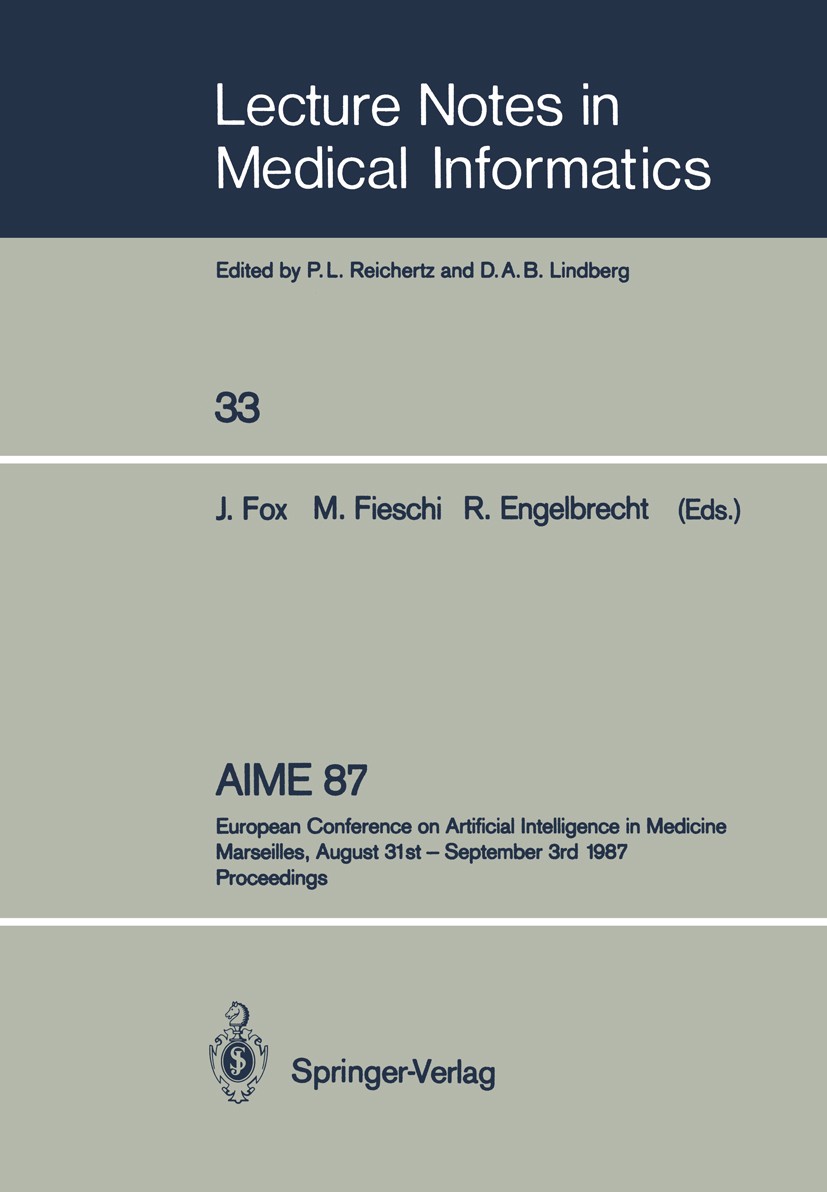| 期刊全稱 | AIME 87 | | 期刊簡稱 | European Conference | | 影響因子2023 | John Fox,Marius Fieschi,Rolf Engelbrecht | | 視頻video | http://file.papertrans.cn/143/142906/142906.mp4 | | 學科分類 | Lecture Notes in Medical Informatics | | 圖書封面 |  | | 影響因子 | The current scarcity of expert systems where the reasoning is based on Bayesian probability theory may be due to misconceptions about probabilities found in the literature. As argued by Cheeseman (1985), these misconceptions have led to the attitude: "The Bayesian approach doesn‘t work - so here is a new scheme". Several of these expert systems based on ad hoc "probability" concepts have been successful in a number of ways, demonstrating the necessity of being able to handle uncertainty in medical expert systems. They also demonstrate the need for a theoretically sound handling of uncertainty. In Andersen et al. (1986) it was postulated that knowledge organized in a causal network can be used for a unified approach to the main tasks of a medical expert system: diagnosis, planning of tests and explanations. The present paper explores this postulate in a causal probabilistic network. It also provides a practical demonstration that the problems supposedly associated with probabilistic networks are either non-existent or that practical solutions can be found. This paper reports on the methods implemented in MUNIN* -an expert system for electromyography (EMG) (Andreassen et al. 1987). E | | Pindex | Conference proceedings 1987 |
The information of publication is updating

|
|
 |Archiver|手機版|小黑屋|
派博傳思國際
( 京公網安備110108008328)
GMT+8, 2025-10-31 15:05
|Archiver|手機版|小黑屋|
派博傳思國際
( 京公網安備110108008328)
GMT+8, 2025-10-31 15:05


